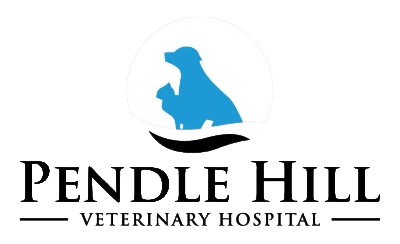Nutritional Advice
Along with regular exercise and veterinary care, careful nutrition is the best way you can contribute to your pet’s prolonged good health.
We know that you want the best for your furry friends, and that includes making sure they’re eating right. Let us help you set up a diet plan that will keep them healthy and happy for years to come.
These are the basic nutrients every pet needs:
- Water is the most essential nutrient in any diet. Your pet’s body is made up of approximately 70% water. Ensure your pet can access fresh, clean water at all times.
- Carbohydrates supply energy and come from sugars, starch, and fibre from plant sources.
- Proteins are required for a healthy coat, skin, and nails. Your pet’s body uses the amino acids in proteins to make enzymes and hormones in the blood stream and to maintain a healthy immune system. Proteins can come from plant and meat sources, but cats and dogs need a high-quality animal protein.
- Fats also supply energy, however, too much fat can lead to such obesity-related health problems such as diabetes, heart disease and osteoarthritis.
- Vitamins and minerals help regulate many body systems. For example, your pet needs the minerals calcium and phosphorous for strong bones. Antioxidant vitamins like vitamin E and C help boost your pet’s immune system during times of stress.
How do you make sure your pet’s diet is healthy?
We strongly recommend that you:
- Feed premium pet foods – Hill’s or Royal Canin. Premium foods offer high-quality ingredients, are made by companies specialising in nutritional research. Feeding generic pet foods from the supermarket are not recommended.
- In general, hard food (or “kibble”) is preferred for maintaining dental health and minimizing tartar build-up.
- Feed the right amount. Ask us or check the label for how much to feed according to your pet’s ideal weight (not necessarily the same as their current weight). Avoid feeding pets as much as they want or feeding a large amount at one time. Doing so can lead to obesity, gastrointestinal upset, or even bloat, a life-threatening condition.
- Younger pets (< 6months) need to be fed more frequently, 2-3 times per day as their metabolism is not well developed.
- Avoid “people” food. Your pet’s digestive system is simpler than yours and can be easily upset by changes. Feeding table scraps will result in an unbalanced diet, can cause stomach upsets or even life-threatening inflammation of the pancreas.
Home-cooked diets for dogs
- These must not only contain meat – meat only diets are very unbalanced, especially in their minerals calcium and phosphorus.
- Vegetables are good for your pets as they are for you
Life Stage Feeding
Your pet’s nutritional requirements will change as they age. Puppies need puppy food because it is higher in energy, calcium and protein, but feeding it to an adult dog can lead to obesity. Likewise, older pets need diets restricted in fat and supplemented with fibre for their optimum health. Many premium senior diets also contain additives to assist in the management of arthritis and can make your pet more comfortable.
Please give us a call to discuss your pet’s nutritional needs. We will tailor a diet specifically for your pet that will give them the optimum quality and length of life.
Remember, you are what you eat, and so is your pet!
